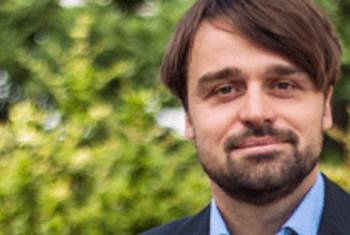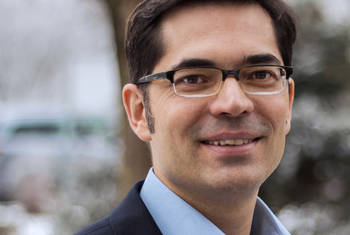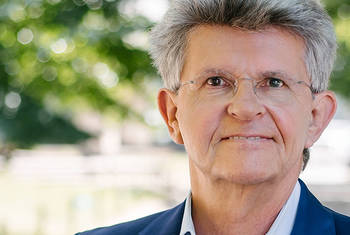Si Chen What Prompts Decision Makers to Stop Collecting Relevant Information?
Si Chen is a PhD candidate in Economics at the University of Bonn. In 2017-18, she completed a research fellowship at Yale University. Si Chen’s research interests include Behavioral Economics, Applied Microeconomics and Microeconomic Theory. Her paper ‘Motivated Information Acquisition in Social Decisions’ (with Carl Hesse) won the 2019 Econ Best Paper Job Market Award (European Economic Association and UniCredit Foundation).
Area of Research
Behavioral and Experimental Economics
since 2020
Assistant Professor
University of Vienna
Department of Economics
since 2018
Research Fellow
University of Bonn (Rheinische Friedrich-Wilhelms-Universität Bonn) (more details)
Collaborative Research Center (CRC) TR 224
2018-2018
Visiting Assistant in Research
Yale University
Introductory Macroeconomics (undergrad)
2017-2017
Teaching Fellow
Yale University
Game Theory (Undergraduate)
since 2014
Ph.D.
University of Bonn (Rheinische Friedrich-Wilhelms-Universität Bonn) (more details)
Department of Economics
2014-2018
M.Sc in Economic
University of Bonn (Rheinische Friedrich-Wilhelms-Universität Bonn) (more details)
Department of Economics
2012-2014
B.Sc in Economics
Otto-von-Guericke University Magdeburg (Otto-von-Guericke-Universität Magdeburg)
2009-2014
B.Sc Economics
Xiamen University
Prizes
- Econ Job Market Best Paper Award, European Economic Association and UniCredit Foundation (2019)
- The Diligentia Foundation for Empirical Research (in cooperation with Thomas Dohmen and Elena Shvartsman, 2019)
- German Research Foundation (2015-2018)
 © University of Bonn
© University of Bonn

University of Bonn (Rheinische Friedrich-Wilhelms-Universität Bonn)
Bonn is one of the large universities in Germany, with around 36,000 students, 550 professors, 6,500 other staff staff. It offers a wide disciplinary spectrum comprising some 200 different degree programmes, from Agricultural Science to Tibetan Studies. This diversity is what characterizes Bonn as a full-range university with a strong international orientation. In many international university rankings Bonn is placed among the 100 best universities in the world.Its academic and research profile features internationally renowned specializations in the fields of Mathematics, Physics/Astronomy, Economics, Chemistry, Pharma Research, Biosciences, Genetic Medicine, Neurosciences and Philosophy/Ethics. Other disciplines, such as Geography and Law, are of outstanding importance within the German research scene.
The Rheinische Friedrich-Wilhelms-Universität Bonn is rooted in a long tradition going back almost 200 years. It was founded in 1818 by Friedrich-Wilhelm III, the Prussian king whose name it bears. Imbued with the spirit of Wilhelm von Humboldt, the university quickly joined the circle of Germany's most distinguished universities and became a major pole of attraction for leading scholars as well as students.The list of famous professors ranges from the astronomer Friedrich Wilhelm Argelander (1799-1875), through the chemist August Kekulé von Stradonitz (1829–1896) and political economist Josef Schumpeter (1883–1950) to the philologist Ernst Robert Curtius (1886–1956) and the theologists Karl Barth (1886–1968) and Joseph Ratzinger (born 1927), now Pope Benedict XVI. Bonn's best-known students include Heinrich Heine, Karl Marx, Friedrich Nietzsche, and Konrad Adenauer.
The university is proud of a long list of award-winning scientists and scholars, with about twenty Leibniz Prize winners and around thirty ERC grantees. In the last three decades two professors have received the Nobel Prize: Wolfgang Paul (for Physics, 1989) and Reinhard Selten (for Economics, 1994). (Source: University of Bonn)
Institute
The Collaborative Research Center (CRC) TR 224 – EPoS
The Collaborative Research Center (CRC) TR 224 – EPoS is a cooperation between the University of Bonn and the University of Mannheim. Funded by the German Research Foundation (DFG), it aims to analyze and provide policy proposals that address three key societal challenges: how to promote equality of opportunity; how to regulate markets in light of the internationalization and digitalization of economic activity; and how to safeguard the stability of the financial system.
Map
To identify the best possible outcome, decision makers require information. In this video, SI CHEN explores information acquisition strategy and seeks to pinpoint when and why decision makers conclude that they have done sufficient research. In a laboratory experiment, decision makers are paired with receivers who, though affected by the decision, can only passively observe it. Decision makers have access to information which helps them to learn each option's outcomes for the receivers, while they know which option would benefit themselves. Combining the experimental outcomes with a theoretical model, Chen observes that decision makers tend to cease looking for more information when they come across information supporting a selfish behavior, but tend to continue and "search for excuses" to behave selfishly when this is not the case. Highlighting the decision makers' autonomy in information acquisition, the work shows that further research on information acquisition strategy will play a key role in our understanding of decision making.
LT Video Publication DOI: https://doi.org/10.21036/LTPUB10789
Motivated Information Acquisition in Social Decisions
- Si Chen and Carl Heese
- Published in 2019









